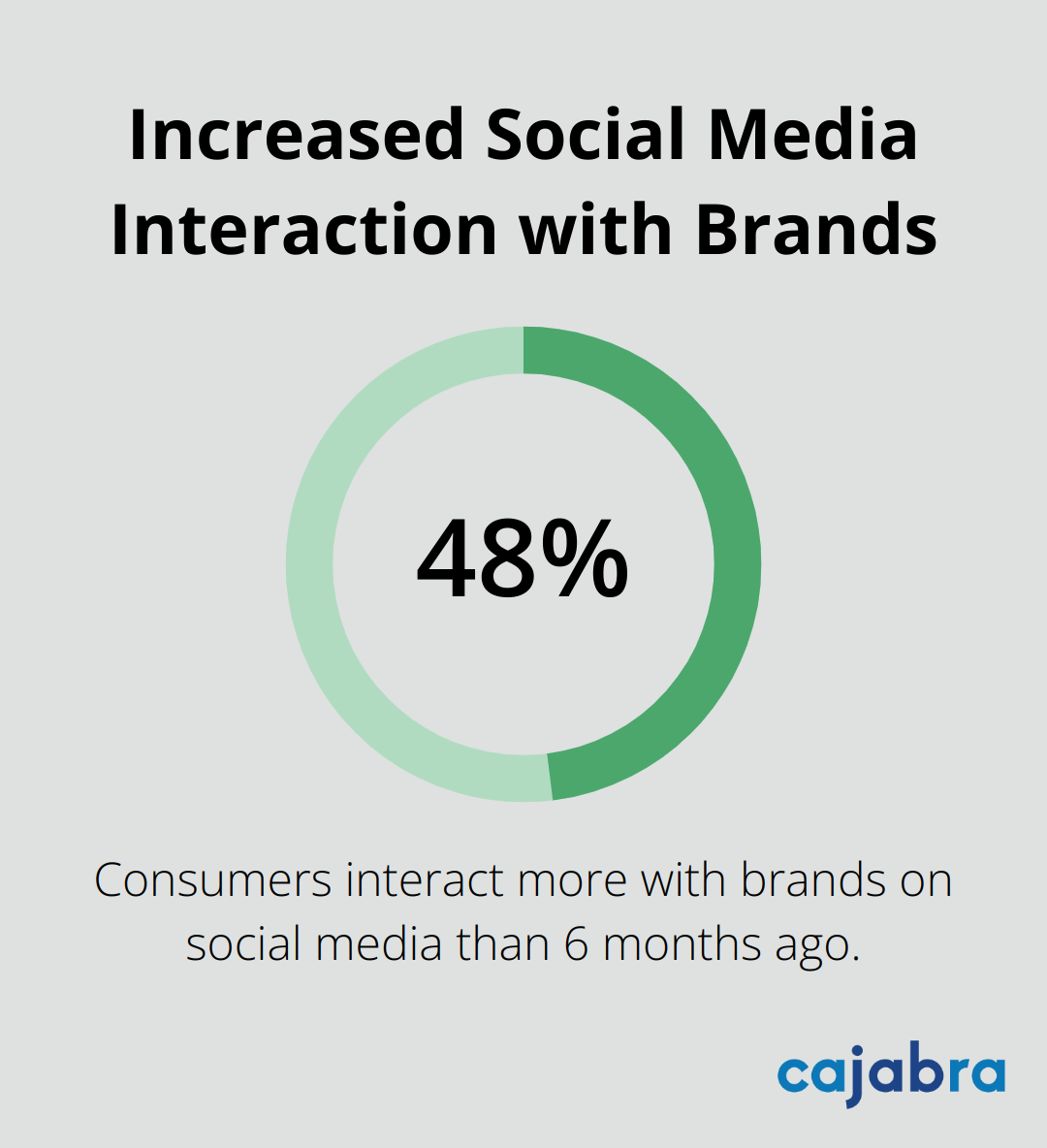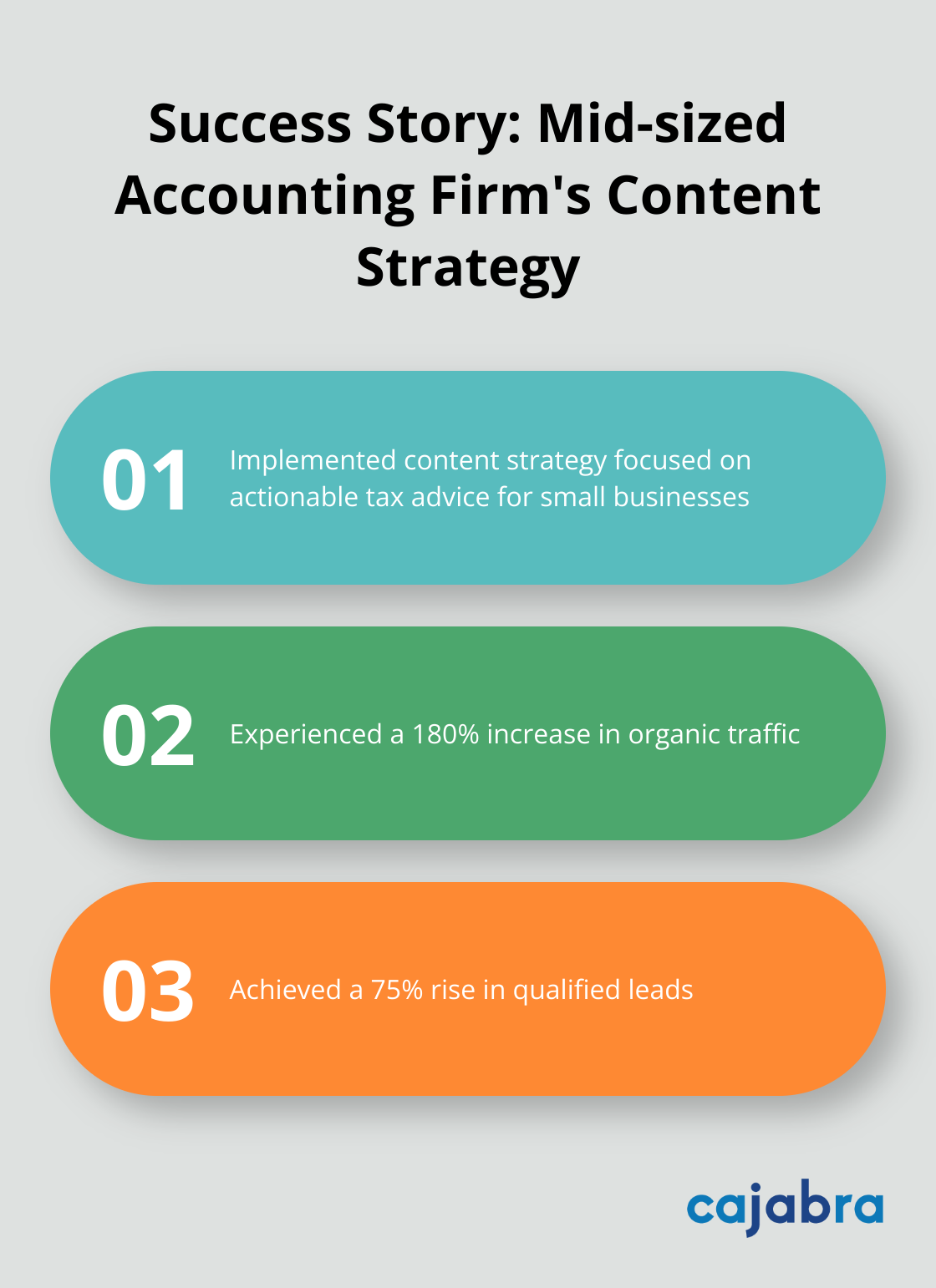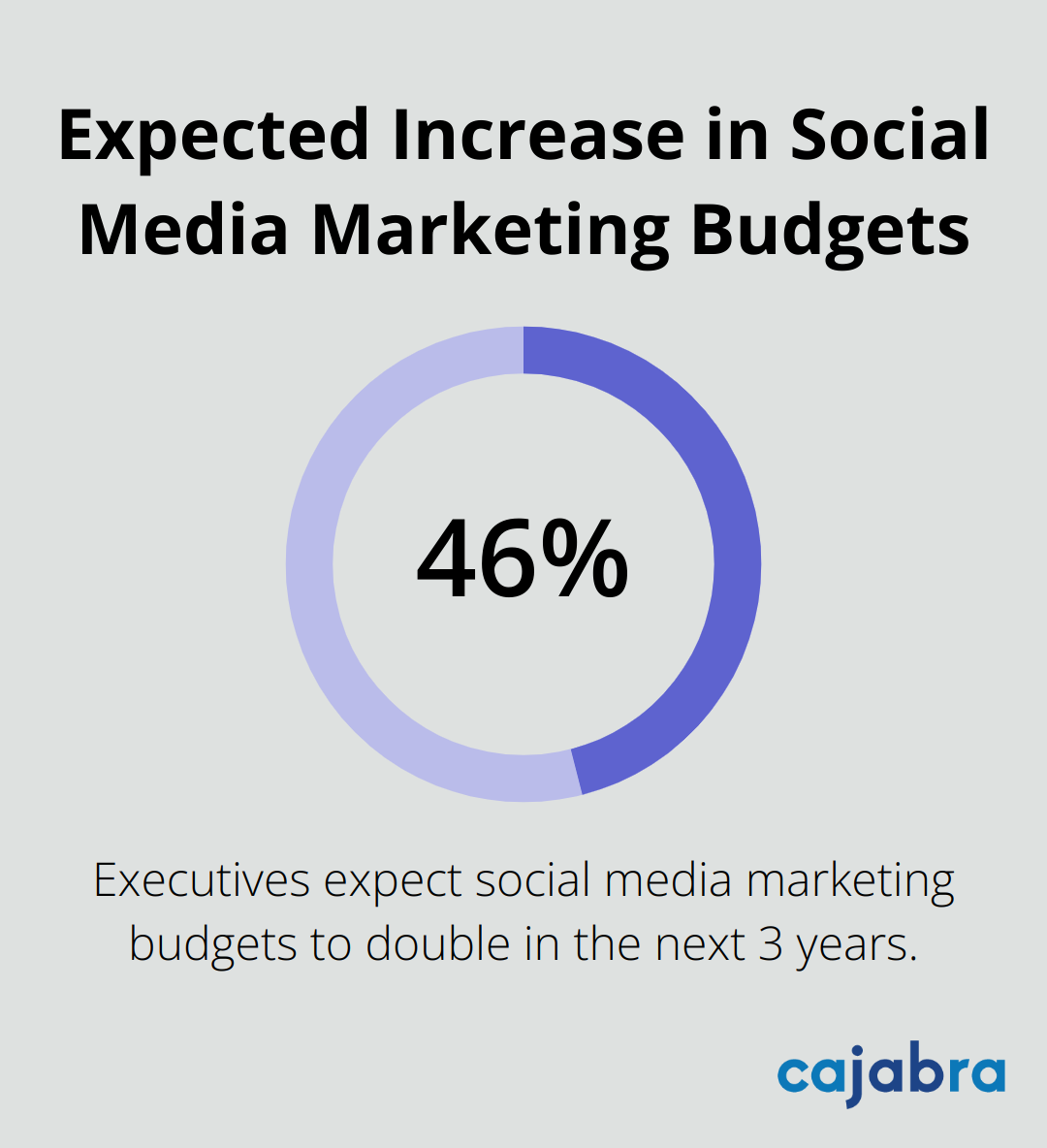
At Cajabra, LLC, we often field questions about the most effective digital marketing strategies. One debate that frequently arises is content marketing versus social media: which drives more ROI?
This blog post dives into the key differences between these two approaches, exploring their unique strengths and potential returns on investment.
We'll examine real-world examples, metrics, and tools to help you make informed decisions for your marketing strategy.
Content marketing and social media are two powerful digital marketing strategies, each with unique characteristics and benefits. At their core, both aim to engage audiences and drive business growth, but they operate in distinct ways.
Content marketing focuses on the creation and distribution of valuable, relevant content to attract and retain a clearly defined audience. This strategy often includes blog posts, videos, podcasts, and eBooks. An accounting firm might publish a series of articles on tax-saving strategies or create an eBook on financial planning for small businesses.
Content Marketing Institute provides research to help improve content marketing strategies in the coming year. This underscores the potential of well-executed content strategies to drive meaningful business results.
Social media marketing uses platforms like Facebook, LinkedIn, and Twitter to connect with audiences, build brand awareness, and promote products or services. It creates a community around your brand and fosters direct interactions with customers.
According to Sprout Social, nearly half (48%) of consumers said they interact with brands more often on social media than six months ago. This highlights the importance of maintaining an active and engaging social media presence.

Content marketing focuses on creating in-depth, valuable information, while social media marketing emphasizes quick, shareable content and real-time engagement. Content marketing typically requires more time to see results but can lead to long-term authority building. Social media, on the other hand, can generate immediate engagement but may require consistent effort to maintain visibility.
Despite these differences, the two strategies often work best when integrated. Social media platforms serve as excellent distribution channels for content marketing pieces, amplifying their reach. Conversely, high-quality content can fuel social media discussions and increase engagement rates.
An accounting firm could create a comprehensive guide on business tax preparation (content marketing) and then share key insights from this guide across their social media channels, driving traffic back to their website.
Understanding these distinctions and synergies is essential for developing a balanced digital marketing strategy that maximizes ROI. Many successful businesses (including those in the accounting sector) combine both approaches to create a comprehensive marketing plan.
For example, a firm might use content marketing to establish thought leadership through detailed blog posts and whitepapers, while simultaneously leveraging social media to share snippets of this content and engage with their audience in real-time.
This integrated approach allows businesses to benefit from the long-term authority building of content marketing and the immediate engagement opportunities of social media. The next section will explore how to measure the ROI of content marketing efforts, providing insights into the effectiveness of this strategy.
Content marketing ROI measurement plays a vital role in understanding strategy effectiveness. We've developed methods to track and analyze content marketing success for accounting firm clients.
Identifying the right KPIs aligns with your business goals. For accounting firms, common KPIs include:
Several tools help track content marketing success:
While specific client data remains confidential, content marketing campaigns in the accounting industry have yielded remarkable results.
A mid-sized accounting firm implemented a content strategy focused on actionable tax advice for small businesses. They experienced a 180% increase in organic traffic and a 75% rise in qualified leads, significantly boosting their sales.

Another firm specializing in forensic accounting used content marketing to establish thought leadership. They created a series of in-depth articles and webinars on fraud detection. This strategy resulted in a 200% increase in website traffic and positioned them as industry experts, leading to speaking engagements and high-profile client engagements.
Content marketing ROI measurement doesn't stop at data collection. Use these insights to refine your strategy continually. A/B test different content formats, topics, and distribution channels to optimize performance. Regular analysis allows you to allocate resources more effectively and focus on the content types that drive the most value for your accounting firm.
As we move forward, let's explore how social media marketing complements content strategies and contributes to overall marketing ROI.
Social media marketing has become a cornerstone of digital strategies, but measuring its ROI presents challenges. We have developed methods to accurately assess the impact of social media efforts for accounting firms.
Engagement rate measures how actively your audience interacts with your content through likes, comments, and shares. For accounting firms, a high engagement rate often indicates that your content resonates with your target audience.
Conversion rate tracks the percentage of social media visitors who take a desired action (such as signing up for a newsletter or requesting a consultation). A study found that 46% of executives expect their company's social media marketing budgets will increase up to 100% in the next three years, highlighting the growing importance of these metrics.

Several platforms offer robust analytics for tracking social media ROI. Facebook Insights provides detailed data on post reach, engagement, and audience demographics. Twitter Analytics offers similar insights, including tweet impressions and profile visits.
For a more comprehensive view, tools like Hootsuite and Sprout Social aggregate data from multiple platforms, allowing for easier comparison and analysis. These tools can track metrics like share of voice, which measures how much of the online conversation your brand owns compared to competitors.
An accounting firm used LinkedIn to promote a series of webinars on financial planning for small businesses. The campaign generated 500 new leads and resulted in 20 new retainer clients, showcasing the potential of targeted social media strategies.
Social media ROI can vary widely depending on factors like audience, content quality, and platform choice. Consistent testing and optimization are key to maximizing returns. The immediate engagement of social media, when combined with other strategies like content marketing, can create a powerful, ROI-driven marketing approach for accounting firms.
Social media marketing proves most effective when integrated with other strategies. Try combining the immediate engagement of social media with the long-term authority building of content marketing. This integration allows accounting firms to create a comprehensive, ROI-driven marketing approach that leverages the strengths of both strategies.
Content marketing versus social media both offer unique advantages for marketing success. Content marketing builds long-term authority and trust, leading to higher quality leads and improved customer retention. Social media marketing provides immediate engagement and rapid brand exposure, allowing real-time interaction with your audience.
We recommend an integrated approach that leverages the strengths of both strategies. Create high-quality content and use social media platforms to amplify its reach. This synergy can improve engagement, increase brand visibility, and ultimately, deliver better ROI.
At Cajabra, we help accounting firms navigate complex marketing landscapes. Our JAB System™ combines content marketing and social media strategies to move accountants from overlooked to overbooked. We handle all aspects of marketing, allowing you to focus on your expertise while we boost your online presence.



